SCIENTIFIC PAPERS
Simulating the Effects of Offshore Wind Energy Policy on Decarbonization and Industrial Growth in Taiwan: A System Dynamics Approach
Significant growth of the offshore wind sector is creating key projects, opportunities, and challenges that are currently shaping industry trends. Countries around the world are hoping to alleviate the environmental pressure caused by greenhouse gas emissions from traditional energy sources through the use of renewable energy.
Significant growth of the offshore wind sector is creating key projects, opportunities, and challenges that are currently shaping industry trends. Countries around the world are hoping to alleviate the environmental pressure caused by greenhouse gas emissions from traditional energy sources through the use of renewable energy. For such an undertaking to be successful will require corresponding and supportive economic, energy and other types of policy and practice. Among many renewable energy sources, using wind to produce energy has fewer effects on the environment than many other energy sources. Wind power is considered one of the cleanest and most sustainable ways to generate electricity. Thus, wind power has become one of the fastest-growing industrial sectors in the world. Numerous countries promote wind power as investment in renewable energy can foster low-carbon growth in most economies, such as installation subsidies, encouraging research and technology development, tax incentives, FIT, and others to promote the use and viability of renewable energy sources. The various methods and approaches have been studied, and their contributions are clear and conspicuous. However, considering the efficiency of electrical power generation and its effect on decarbonization, emission reduction costs and industrial growth of offshore wind power were omitted in the existing studies. Specially, to the best of our knowledge, no model has been proposed in the literature studies that considers the impacts of both government subsidy policy and efficiency of electrical power generation on decarbonization, emission reduction costs and industrial growth of offshore wind power.
This study aims to propose an approach for evaluating the impact of both government subsidy policy and efficiency of electrical power generation from offshore wind power on decarbonization, emission reduction costs, and the development of offshore wind power industry. A behavior model based on the system dynamics approach is proposed to assess the effectiveness of various policy scenarios. All the deficiencies and problems that exist in the literature studies will be addressed by the proposed approach in this study.
The results from simulations show that decarbonization and development of offshore wind power industry from 2022 to 2025 are impacted significantly by the subsidy policy and the system capacity. Under the coordinated development mode of energy and environment, a comprehensive policy scenario can revitalize the development of the offshore wind power industry and better off environmental protections to a large extent. The results indicate that the best strategy will be to combine a capacity factor of 0.53 with a FIT price of 0.15 US$/kWh.
Maintaining a FIT price and capacity factor higher than the baseline scenario can achieve the government's installation capacity target of 5.5 GW in 2025 ahead of schedule and reduce environmental pollution from CO2 emissions. A policy written along these lines would achieve stated goals but may put pressure on governments to reduce the cost of emissions. If the FIT price is reduced by 20%, the lowered range is too large, and there is no incentive for OWP expansion, which may lead to a delay in reaching output targets. Under the coordinated development scenario of energy and environment, an appropriate reduction of 8.2% of the FIT price while maintaining a high capacity factor of 0.53. Compared with the baseline scenario, the cumulative installation capacity, CO2 emissions reduction, and industrial output value had a promotional effect as shown by the simulation, and alleviated possible pressure on the government caused by emissions reduction cost. OWP expansion is a matter of energy security, industrial development, and environmental protection and is a tool to help move toward environmental sustainability by expanding the use of renewable energy with a reasonable combination of policies.
Originated from
Jiayi Chen, Tiffany Hui-Kuang Yu, Shuo-Yan Chou, Thi-Anh-Tuyet Nguyen (2022). Simulating the Effects of Offshore Wind Energy Policy on Decarbonization and Industrial Growth in Taiwan: A System Dynamics Approach. Energy for Sustainable Development, 71, 490-504.
https://doi.org/10.1016/j.esd.2022.10.018
AUTHOR FROM VNU UNIVERSITY OF ECONOMICS AND BUSINESS
Dr. Nguyen Thi Anh Tuyet is currently a lecturer of the Department of Economic Management, Faculty of Political Economy, VNU University of Economics and Business. She holds a philosophy diploma in Industrial Management from National Taiwan University of Science and Technology in 2018. Her research and teaching interests include Renewable Energy and Environmental Protection, Energy Policy, Energy Economics, Energy Transition, Carbon Market, Decarbonization, Optimization algorithms, Financial Optimization, Scheduling, Dynamic Programming, Mathematical Programming, Decision Theory and Behavior Analysis, Outcome-based Economy, Supply Chain Management
OTHERS
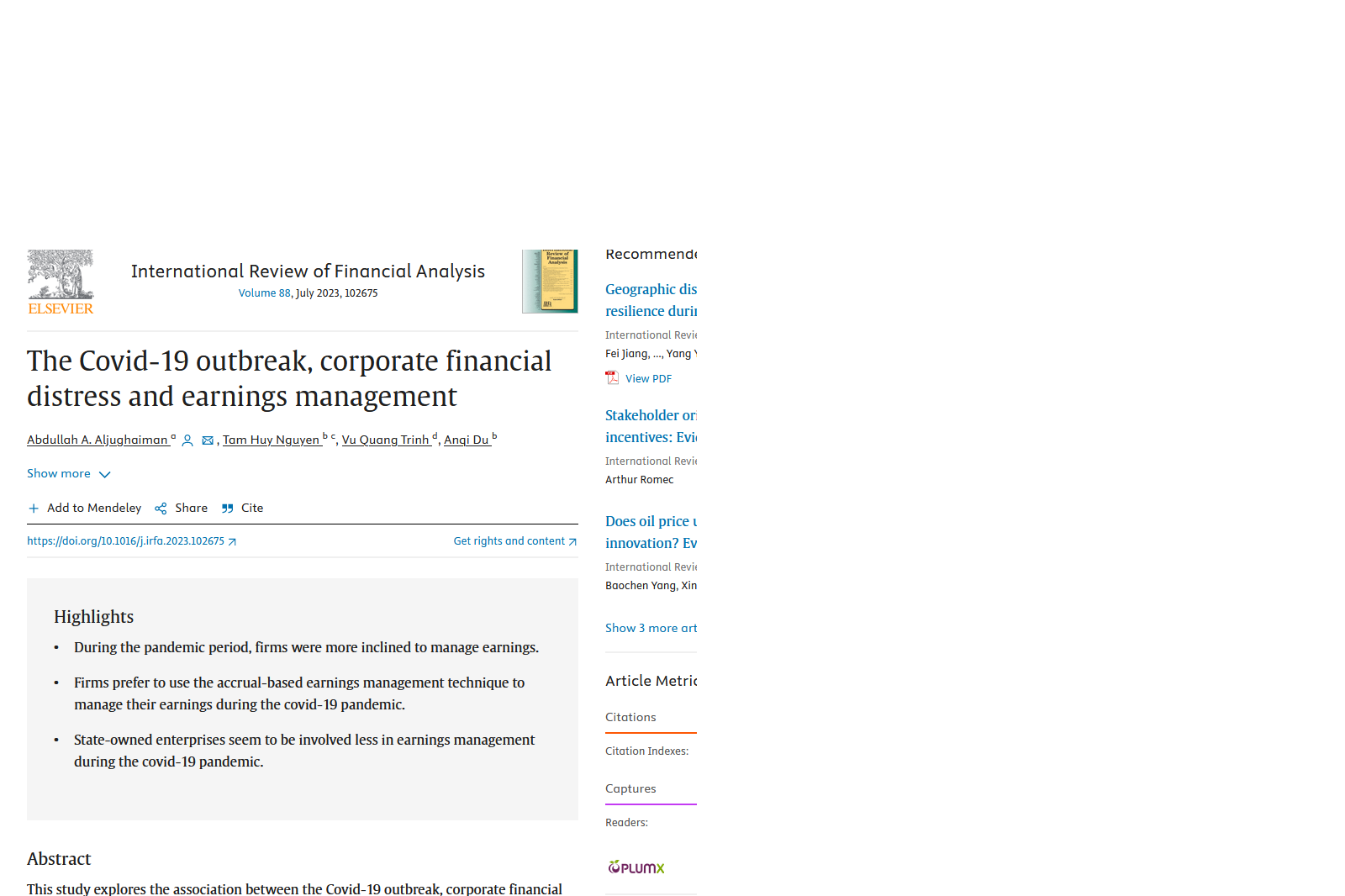
The COVID-19 Outbreak, Corporate Financial Distress and Earnings Management
This study explores the association between the COVID-19 outbreak, corporate financial distress and earnings management practices in China. We investigate ...
More details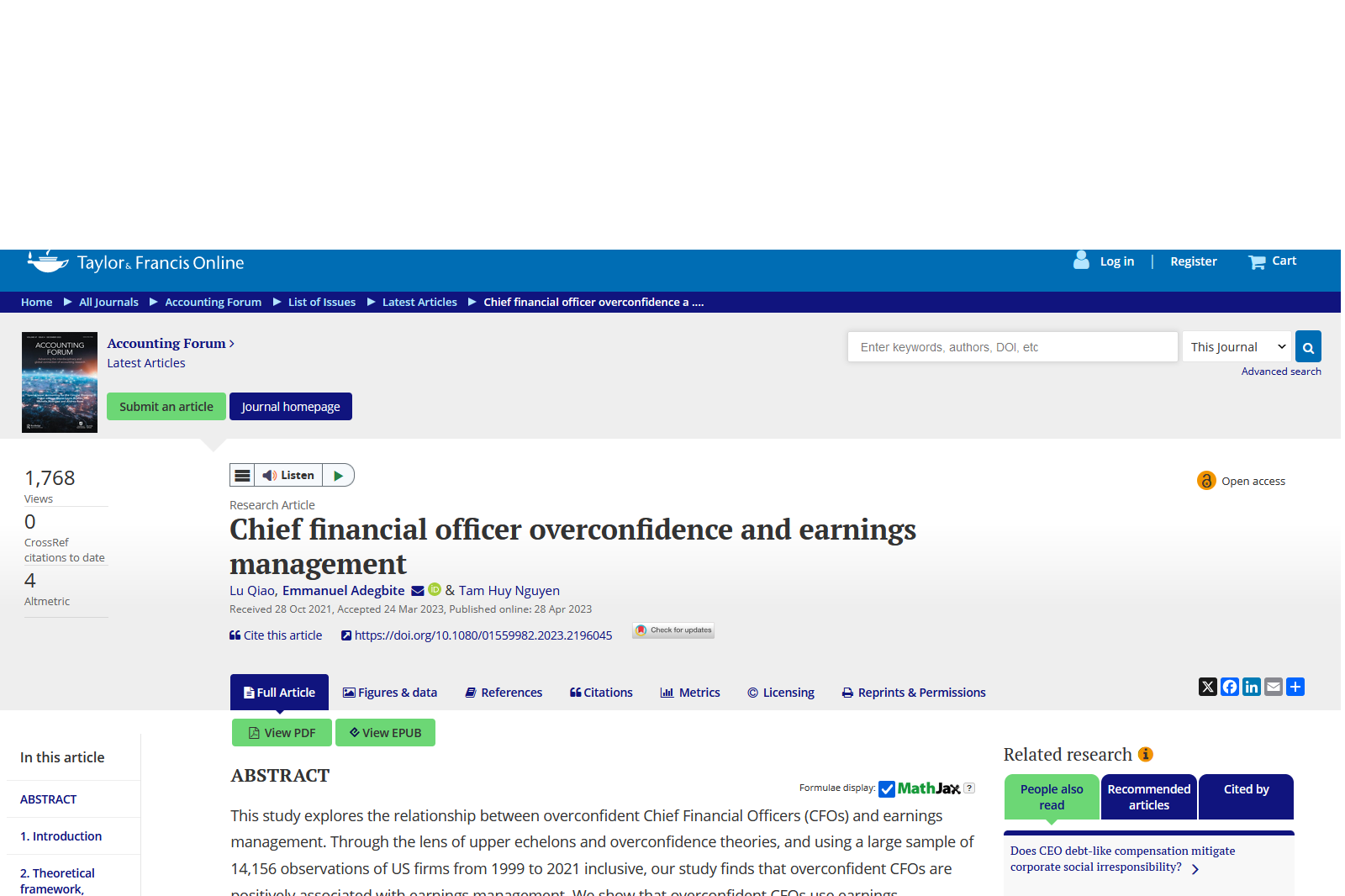
Chief Financial Officer Overconfidence and Earnings Management
This study explores the relationship between overconfident Chief Financial Officers (CFOs) and earnings management. Through the lens of upper echelons ...
More details
UEB's Articles Published in Domestic Journals in 2023
We are pleased to introduce the list of articles published in domestic journals by UEB’s staff and lecturers in 2023 (September).
More details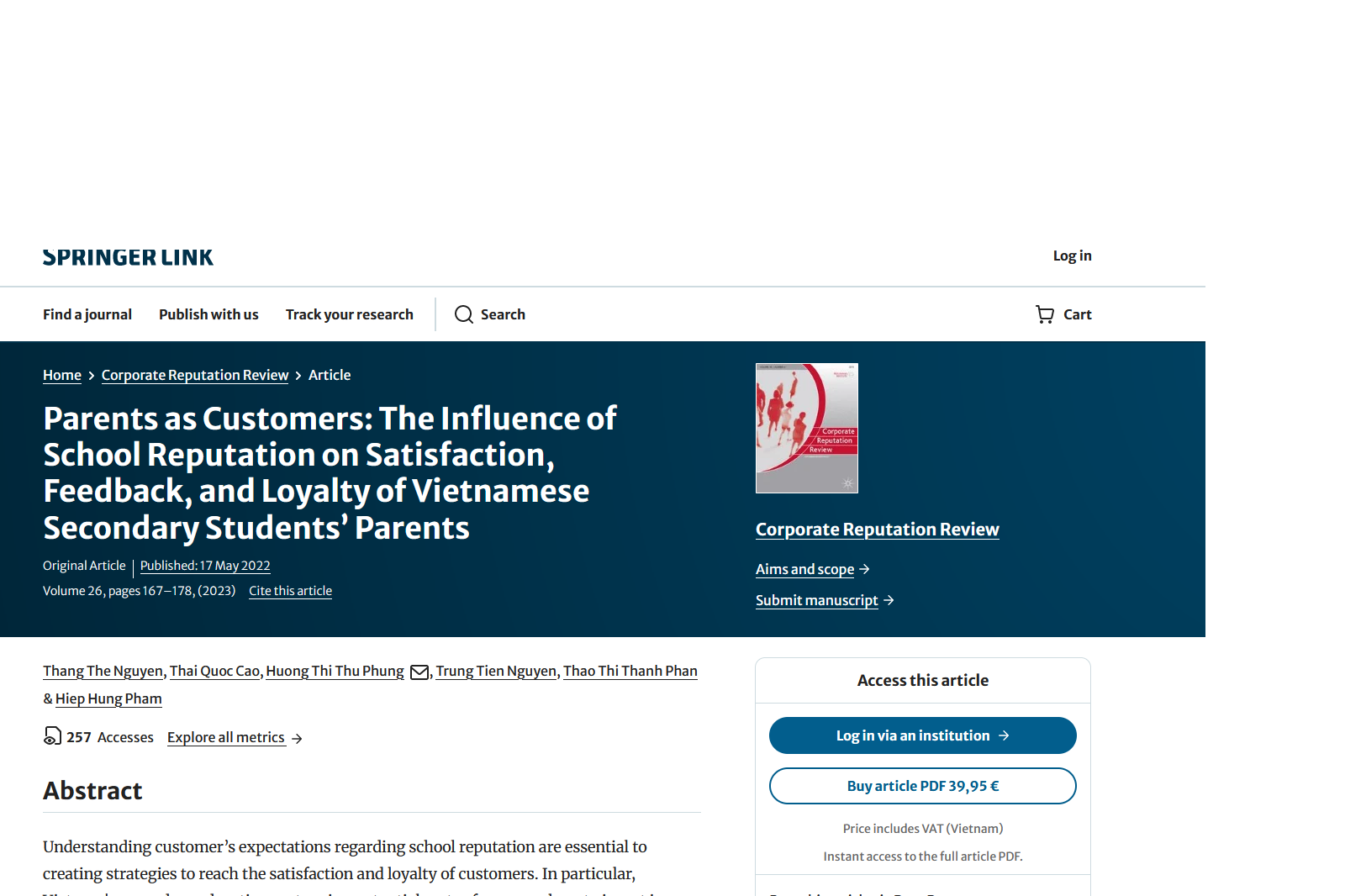
Parents as Customers: The Influence of School Reputation on Satisfaction, Feedback, and Loyalty of Vietnamese Secondary Students’ Parents
Understanding customer’s expectations regarding school reputation are essential to creating strategies to reach the satisfaction and loyalty of customers. ...
More details
UEB's Articles Published in International Journals in 2023
We are pleased to introduce the list of articles published in international journals by UEB’s staff and lecturers in 2023 (September).
More details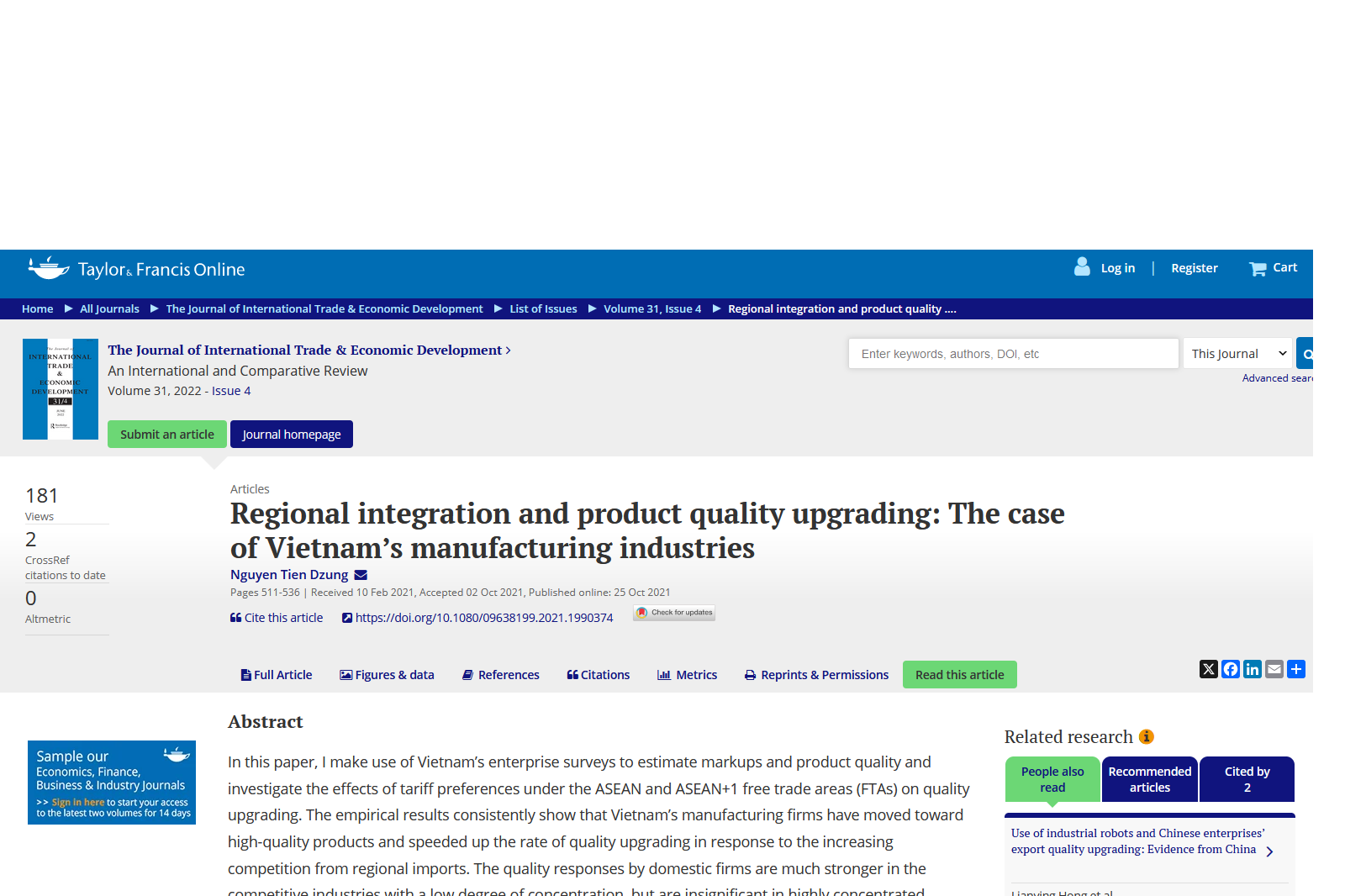
Regional Integration and Product Quality Upgrading: The Case of Vietnam Manufacturing Industries
Trade and competition have been extensively studied in Vietnam and abroad. There has been a large and increasing number of theoretical and empirical studies ...
More details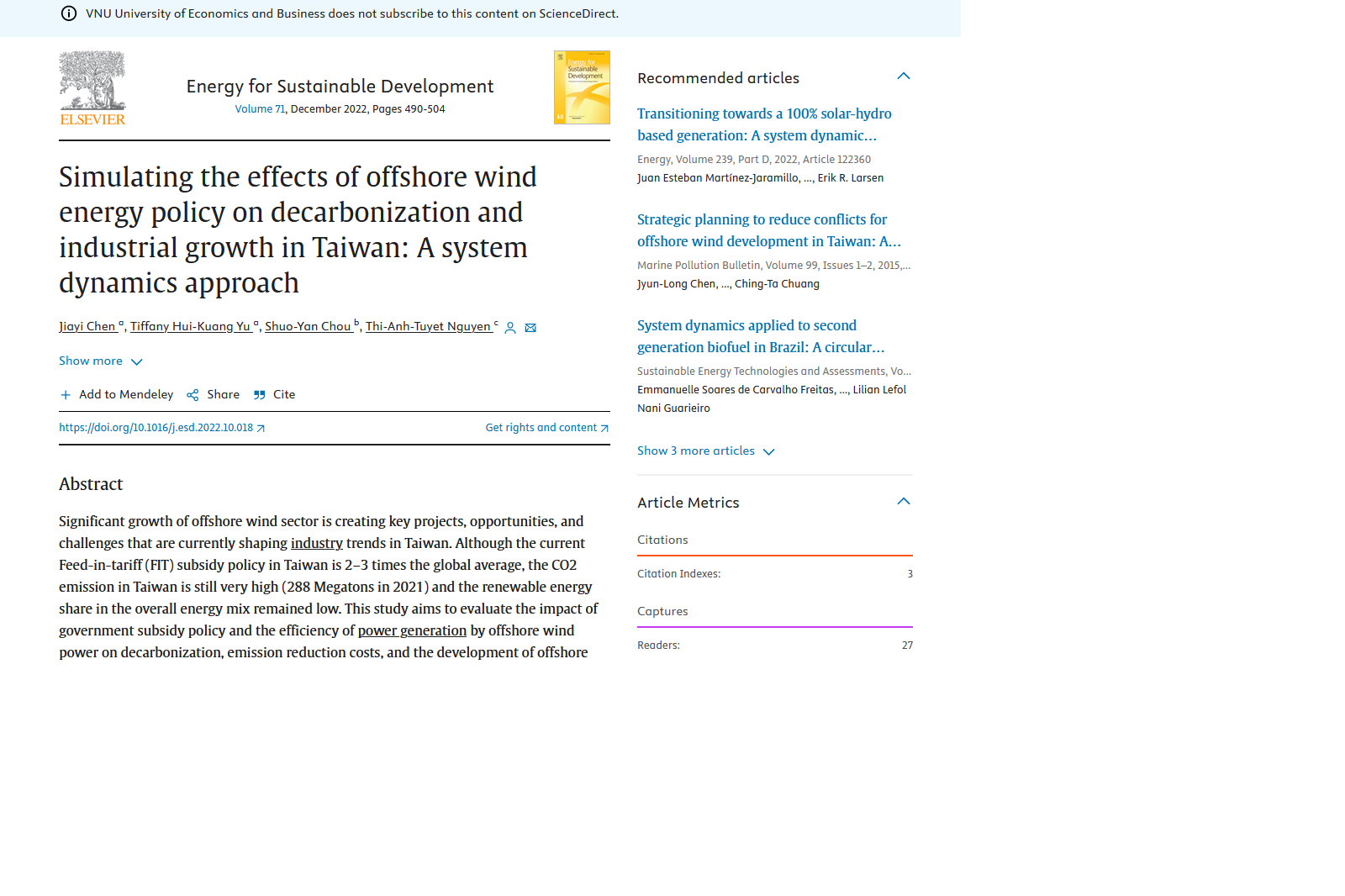
Managing Bank Performance under COVID-19: A Novel Inverse DEA Efficiency Approach
The evolution of the COVID-19 pandemic is highly unpredictable; however, its impacts are limited to neither a single sector nor a single country. This ...
More details

